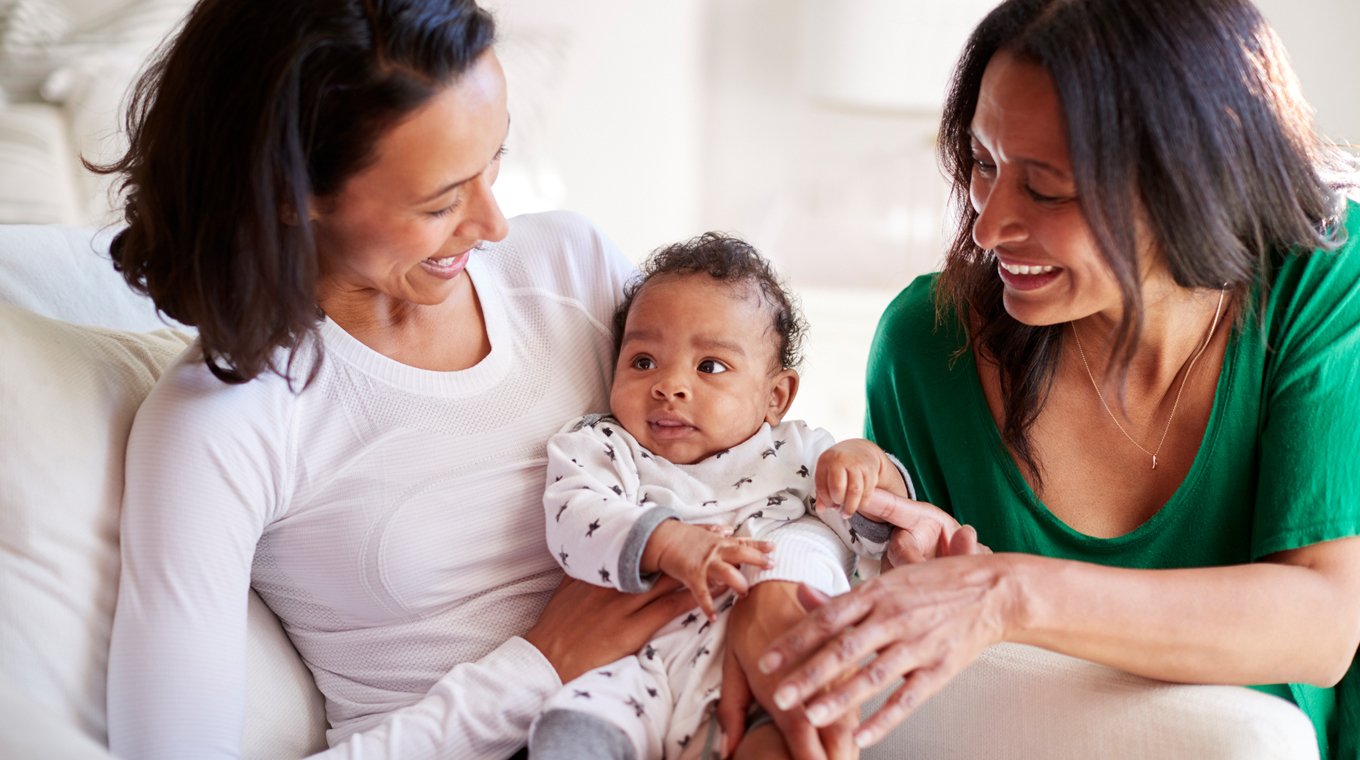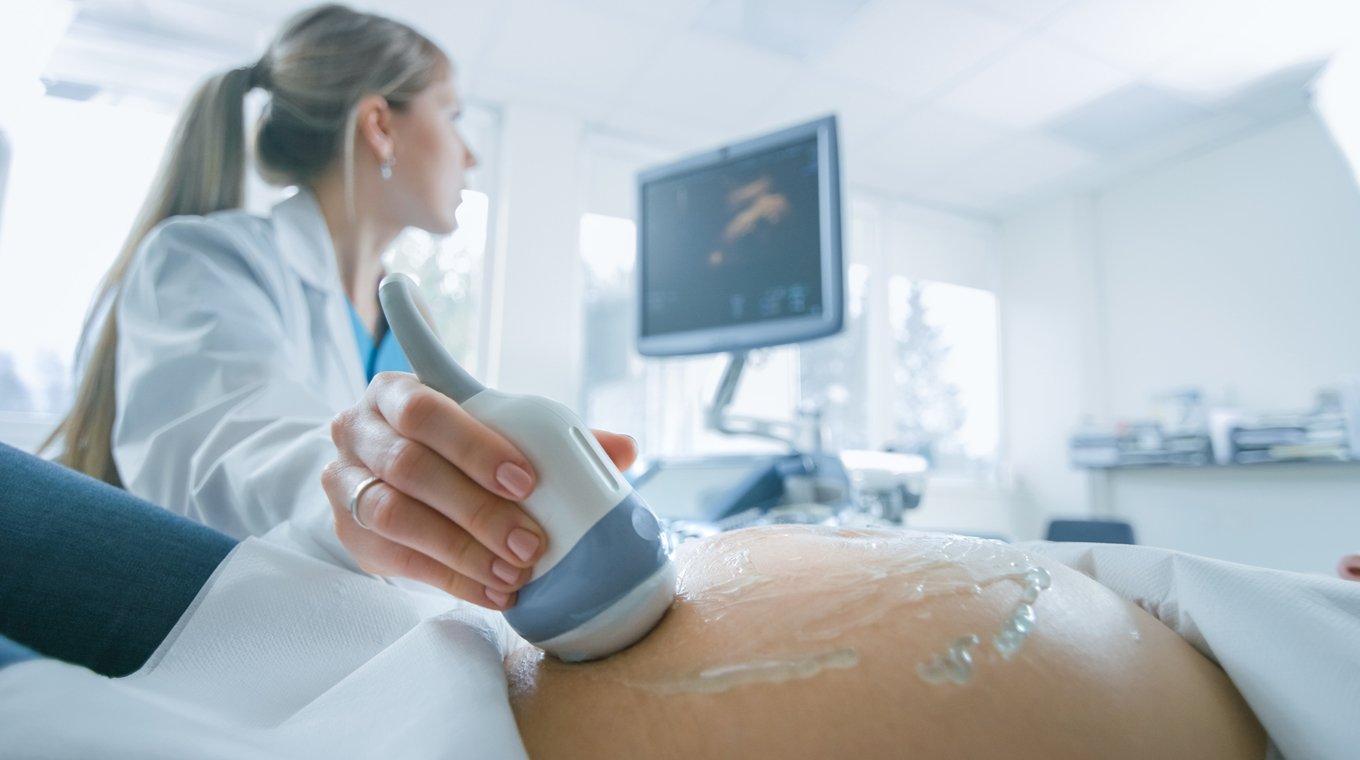
In this article
According to the internet, the best way to get pregnant in our 40s is to time travel back to our 20s, when women are at peak fertility. Compared to our 20s, when the odds of getting pregnant any given month is 20 to 25%, the odds of getting pregnant at 40 plummets to 5%. For women aged 45 to 49, it drops as low as 1%. While it becomes considerably more difficult to get pregnant after 40, the birth rate among women aged 40 to 44 has increased. Though it may not look the way you envisioned, it’s still possible, often with medical intervention.
Can women get pregnant after 40?

Short answer: yes.
Regardless of age, the main factors regarding whether a woman gets pregnant are how well her ovaries function and her general health. So, if you are over 40, healthy, and ovulate regularly, you have a good chance of getting pregnant through sexual intercourse over the course of six months.
“I gave birth to my son when I was 43,” children’s author Jilanne Hoffmann told Mom.com. “I had been on the pill for much of my adult life. I never had any side effects, never smoked, and was very active and physically fit.”
Though many women over 40 have an easy time conceiving and experience uneventful pregnancies and births, the probability of infertility and health concerns shoot up. If you are over 40, it may be a good idea for you to get your ovarian function and hormone levels tested. They may even perform an ultrasound to see if there is fallopian tube blockage. If your partner is male, he may also want to consider having a semen analysis. Your doctor would likely also recommend changes to lifestyle and diet to improve your chances of getting pregnant.
Because fertility issues are more likely to occur for older women (and men), it’s important to see a doctor as soon as possible because fertility treatments are also less effective for women older than 40. For example, IUI (intrauterine insemination) treatment success rates for women in their 40s are as low as 5% and IVF (in vitro fertilization) treatment success rates are 15% per cycle.
When is the best time to get pregnant?

iStock
While it is possible for a woman to become pregnant at any point during the menstrual cycle (even when you have your period), the best time to conceive is generally 2 to 3 days before ovulation. If you don’t believe in having unnecessary sex (hey, sometimes, making a baby is work and like all work, you don’t want to perform more than necessary), using an ovulation kit, a calendar, or measuring your body’s physiological changes to track your fertility window can be helpful.
Many people think that when you’re trying to conceive, you need to have sex every single day — but that’s not true. While no one will discourage you if that’s what you want, most doctors recommend having sex every 2 to 3 days throughout your cycle, since sperm can survive up to 5 days in the female reproductive tract.
After Hoffman stopped taking the multi-phasic, low-dose estrogen combined with progestin birth control pills, she thought it would take her awhile to get pregnant because she was older and had taken birth control pills for so long. “I started charting my temp and I made sure we had sex within 24 hours of my temp rising,” the mom of one explained. “Within two months of going off the pill, I was pregnant. The pregnancy was uneventful. Giving birth was more difficult.”
Possible effects of getting pregnant in your 40s

iStock
Like Hoffmann, women in their 40s can still have a healthy pregnancy and baby, but the risks — to both the woman and the baby — escalate after the age of 35.
For the woman, there are increased risk of pregnancy complications such as preeclampsia, gestational diabetes, high blood pressure, premature labor, and C-section. For the baby, the risks of premature birth, low birth weight, congenital birth defects, and stillbirth all go up. Most doctors will usually suggest extra testing and monitoring for pregnant women over 35.
“Almost all of my patients who are over 40 check for chromosome anomalies because they want to be psychologically prepared,” Dr. Karen Thies of University of Missouri Health Care wrote on the University of Missouri Health Care website. “The first test can occur as early as the first trimester of the pregnancy, and if a potential anomaly is detected, confirmatory tests can take place after 16 weeks.”
Ultimately, though it may be more difficult to get and stay pregnant after 40, it is possible — and with the benefits of modern science and medicine, many women safely conceive and deliver their children.




